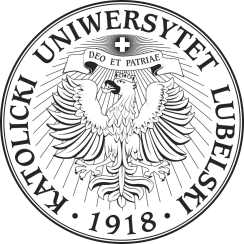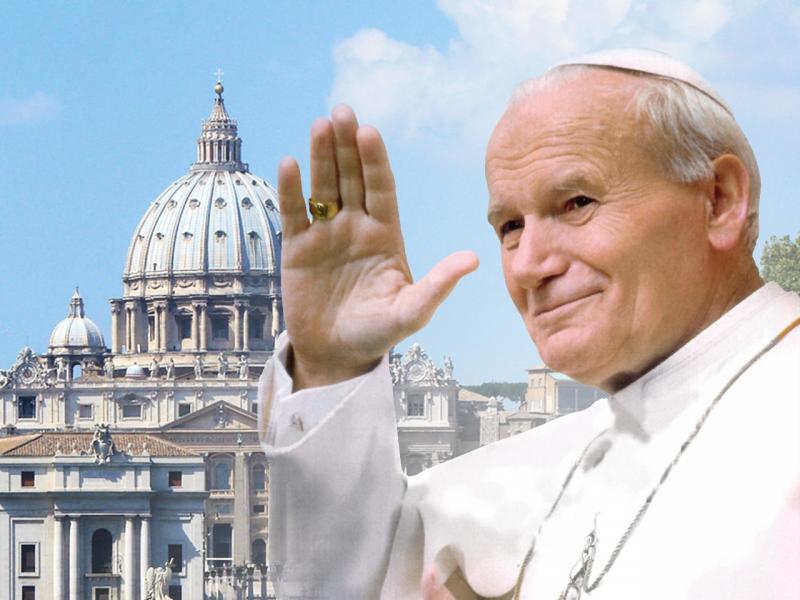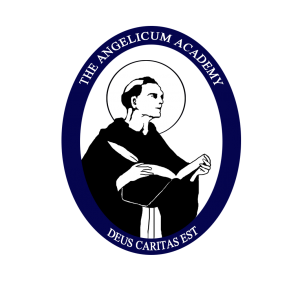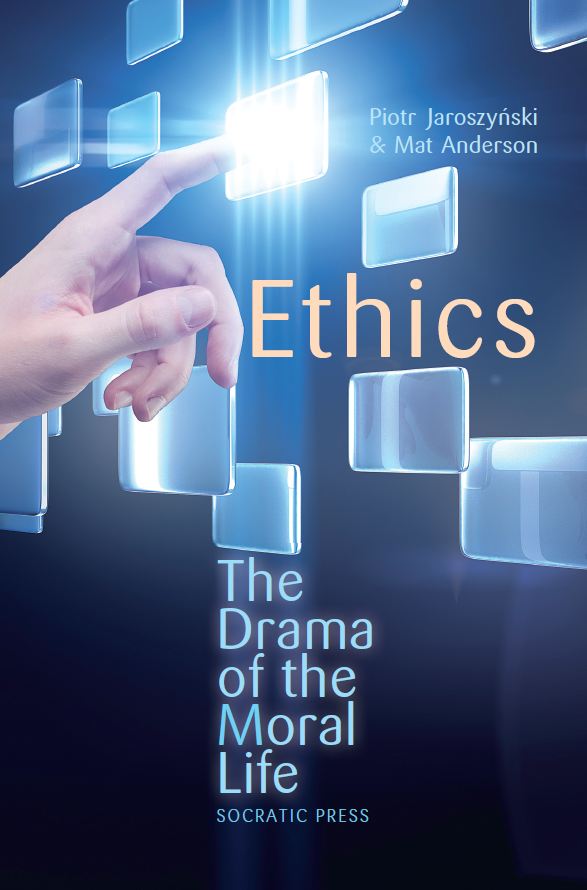
Professor Piotr Jaroszynski
Brief Overview of Lublin Thomism
The Lublin School of Christian Philosophy
by Professor Piotr Jaroszynski, Doctor Habilitatus of the Catholic University of Lublin,
“Lublin Thomism” was born at the Catholic University of Lublin after the Second World War when Poland lost her independence. Stalin installed a puppet government that implemented the agenda and served the interests of the Russian Communists. However, Poland had been traditionaly a very Catholic country and the Catholic Church was still very strong. The opposition towards communism was based upon our identification with the catholicism. Even though we Poles had lost much of our property and independence on the economic or political level, our spirit was free, and we still pursued and recognized the truth. It happened that the Catholic University of Lublin was the only private university over the iron curtain; all other universities were subject to the Marxist ideology. Both the Germans and the Russians tried to eliminate the entire Polish intelligentsia, in incidents such as the massacre of Polish officers by the Russians in Katyn. Some very young professors, who survived the war, like J.Kalinowski, M.A. Krapiec, S.Swiezawski, S.Kaminski, M.Kurdzialek, and later K.Wojtyla (later Pope John Paul II), came to conclusion that they must demonstrate the errors in the marxist conception of man. A wrong conception of man leads to totalitarianism. Their task was not merely to show the errors in a marxist philosophy of man, but to discover and show the true image of man. This was a philosophical task, but also had far-reaching political consequences. This is how ”Lublin Thomism” emerged.
 The Department of Philosophy was opened at the Catholic University of Lublin in 1946. The professors and students there have studied and written works in almost all the fields of philosophy: metaphysics, philosophy of man, philosophy of religion, philosophy of law, epistemology, ethics, philosophy of art and beauty, philosophy of culture, methodology of philosophy etc. Most of the work was done by Father Mieczyslaw Albert Krapiec and his pupils. We try to follow the path of classical realistic philosophy. In our approach, the understanding of being as existing lies at the bottom of all philosophical investigation. The approach of Saint Thomas Aquinas provides a reliable guide in our investigations. While the writings of Saint Thomas himself provide us with a fresh and direct philosophical approach to the major questions of philosophy, the same cannot be said about the tradition that grew from his works. We must distinguish between the actual thought of Saint Thomas as found in his works, and “Thomism”, which is the collective works of many generations of scholars who have commented upon the thought of Saint Thomas. Unfortunately, much of traditional Thomism has distorted the thought of Saint Thomas in the area of philosophy. Saint Thomas presents a philosophy based on existence, which we may call “existentialism” (but we must avoid any confusion with the philosophy of Jean-Paul Sartre in this regard). Much of what is called Thomism is a kind of essentialism. Essentialism lays the stress upon concepts rather than real existence, and takes its starting point in logic rather than in existence.
The Department of Philosophy was opened at the Catholic University of Lublin in 1946. The professors and students there have studied and written works in almost all the fields of philosophy: metaphysics, philosophy of man, philosophy of religion, philosophy of law, epistemology, ethics, philosophy of art and beauty, philosophy of culture, methodology of philosophy etc. Most of the work was done by Father Mieczyslaw Albert Krapiec and his pupils. We try to follow the path of classical realistic philosophy. In our approach, the understanding of being as existing lies at the bottom of all philosophical investigation. The approach of Saint Thomas Aquinas provides a reliable guide in our investigations. While the writings of Saint Thomas himself provide us with a fresh and direct philosophical approach to the major questions of philosophy, the same cannot be said about the tradition that grew from his works. We must distinguish between the actual thought of Saint Thomas as found in his works, and “Thomism”, which is the collective works of many generations of scholars who have commented upon the thought of Saint Thomas. Unfortunately, much of traditional Thomism has distorted the thought of Saint Thomas in the area of philosophy. Saint Thomas presents a philosophy based on existence, which we may call “existentialism” (but we must avoid any confusion with the philosophy of Jean-Paul Sartre in this regard). Much of what is called Thomism is a kind of essentialism. Essentialism lays the stress upon concepts rather than real existence, and takes its starting point in logic rather than in existence.
The phenomenology of Edmund Husserl and his disciples is well-known in Poland, where many notable philosophers are in one way or another disciples of Husserl. Perhaps the best known of the Polish phenomenologists is Roman Ingarden, but there are many others. The Lublin Thomists are well acquainted with phenomenology, and draw upon their insights and methods, but we should not exaggerate the influence of pheneomology upon „lublin thomism”. We think that phenomenology is useful on the level of description, but phenomenology is not a proper starting point for metaphysics. Metaphysics is the first philosophical discipline, and all other branches of philosophy are simply applied metaphysics. Metaphysics is the philosophy of being, and it is essential that the metaphysician should grasp being as existing. Being is grasped in existential judgements, which cannot be reduced to descritions or concepts. However, if the metaphysician adopts the phenomenological “epoche” as his principle method, he becomes an idealist. Since “epoche” is the “bracketing of existence”, that is, leaving the problem of existence to the side in order to concentrate on neutral description, the philosopher who makes “epoche” his starting point lapses into idealism.

Lublin, Poland
The essentialist approach which infected much of Thomism came from the wrong application of some of Aristotle’s works. We find a theory of scientific knowledge in Aristotle’s “Posterior Analytics”, but this particular theory does not belong to metaphysics, nor did Aristotle or Thomas apply it to metaphysics. It is not hard to discover why. This theory of science was proper rather to the particular sciences, especially mathematics and geometry. In such areas we use univocal terms, which can be defined according to proximate genus and specific difference. They fit perfectly as subjects and predicates to syllogistic reasonings. Metaphysicals terms are, by way of contrast, neither univocal nor strictly limited in their range of denotation and thus cannot be strictly defined. To apply them in syllogistics would be an error.
Metaphysics has its own distinctive object and method. We can discern two distinct phases in the development of metaphysical knowledge. The first phase is the formation of the transcendentals. This involves the „clarification” of the concept of being. In the second phase, we peer into the very structure of being in the light of the concept of being and of other transcendentals as well as of the first principles of being. Here we see the major role played by the process of „rendering free of contradiction”. Instead of definition, we have „clarification”, instead of a syllogism, we have „rendering free of contradiction”.
The method by which we graspo being as existing is called „separation”. This method is neutral, there is no „a priori” possible, for any „a priori” appears on the level of content (an essence), not on the level of existence which is grasped immediately, without any media, since existence is not an essence, and cannot be mediated as for ex. a color or a form.
Moral relativism, so predominant in contemporary culture, has its main source in Kantian philosophy. Immanuel Kant introduced to philosophy and to ethics a theory of value, which later on was developed by different neokantian schools, and finally found its place in almost every area of culture. However, the main difference between the value and the good is that the good is a property of being (therefore, good is real!), whereas value was introduced in opposition to being (a correlate of „Sollen” as opposed to „Sein”). The value is not real, since it is not a property of being, and this leads to idealism and the relativisation of morality.
Ethics cannot be separated from the philosophical anthropology, since it is a man who takes decisions, which are good or bad for man. If so, we must know what and who man is. It is absurd to talk about ethics without philosophical anthropology.
 The most important for philosophical anthropology is to discover the inner and outer facts characteristic for man. Then, these facts must be interpreted in a philosophical way, i.e. rendered free of contradiction. Some of the external facts are that fact that man lives in societies, that he produces tools, and uses language. The inner facts include various individual experiences on the physiological, psychic and spiritual level. These facts are apparent only to the subject who experiences them. The subject of experience sees that his individual experiences have the same source. It is the same I, which fulfills different acts: I breathe, I am sad, I think. As Father Krapiec noticed in his brilliant book „I-Man”: to render these facts free of contradiction we need to turn to the theory of the soul which is an act of a body.
The most important for philosophical anthropology is to discover the inner and outer facts characteristic for man. Then, these facts must be interpreted in a philosophical way, i.e. rendered free of contradiction. Some of the external facts are that fact that man lives in societies, that he produces tools, and uses language. The inner facts include various individual experiences on the physiological, psychic and spiritual level. These facts are apparent only to the subject who experiences them. The subject of experience sees that his individual experiences have the same source. It is the same I, which fulfills different acts: I breathe, I am sad, I think. As Father Krapiec noticed in his brilliant book „I-Man”: to render these facts free of contradiction we need to turn to the theory of the soul which is an act of a body.
There are two aspects of the theory of person. From the historical point of view neither the Greeks, nor the Romans had a developed understanding of man as a person. A man was conceived as a soul. The situation changed in the Christian perspective, when every man was respected as created as an image of God; this word „image” was a key, since it corresponded to Greek term „prosopon” and latin word „persona”. From the philosophical point of view this Christian message, as in the case of the discovery of existence, provided a much better explanation for the essential unity of the human being, i.e. composed of body (potency) and soul (act), where a soul of man is a subject for existence and for different acts.
Karol Wojtyla, now Pope John Paul II, was the author of “The Acting Person”. The importance of his reflections in this book seem to lie in his detailed analysis of the human decision as the main source fo human moral responsibility.
Philosophy develops in a different way than mathematics or physics. It is a distinct branch of culture. Mathematicians and physicists do not need to study the past, and each new discovery redefines the field of knowledge. In philosophy, the past always remains important. The methods used in philosophy do not depend upon technological development as in particular sciences. Philosophy has a different object of study(being) and studies its object under a different aspect (qua being). On the other hand, philosophy is the most difficult science to understand and it is good to know the history of philosophy from the very begining, in order to avoid errors when past philosophers have already found proper solutions.
Is metaphysics dead? Is metaphysics irrelevant in a culture which values the constant and incremental progress of the natural sciences and technology? The death of metaphysics would be the death of man as a rational being, since metaphysics poses rational questions which have perennial value for man. I think that those who speak about the „death of metaphysics” simply do not understand what metaphysics is, probably they think about the ontology of Christian Wolff. But here again we see how important is knowledge ot the history of philosophy, without which it is easy to be in a state called by Aristotle „apaideusia” (lack of education). Aristotle began his work, the “Metaphysics”, with a review of the various views of other philosophers. When we read this review, we find that the same views recur throughout history and in our time as well.
How do we see the role of epistemology? Epistemology is various known as the theory of knowledge, criteriology, or gnoseology. Much of modern philosophy puts epistemology in the place of metaphysics. The problem of epistemology taking the place of metaphysics has its source in Cartesian philosophy, the philosophy of René Descartes and his followers. However, Descartes only knew scholastic philosphy as seen thorugh the eyes of Suarez, who followed the path of Duns Scotus. Descartes did not know Thomas Aquinas as an original thinker. After the methodic scepticism was done, it was impossible to return to the real world, since “a posse ad esse non valet illatio”(there is no valid inference from what can be to what is). Without a real being there is no more place for metaphysics. One can substitute it be epistemology or ontology, both leading to nihilism.
Epistemology did not exist as an independent branch of philosophy in ancient and medieval times, because realistic epistemology (and not quasi-metaphysics) is a branch of philosophical anthropology. It is a man (a person) and not an impersonal consciousness who cognizes being. To develop realistic epistemology we must first know what is being and what man is.
________________________________________
The Foundation for the Lublin School of Christian Philosophy
The Foundation for the Lublin School of Christian Philosophy was established in June 1992. The members of the Foundation’s governing board are Prof.dr hab. Piotr Jaroszynski (president), Dr Krzysztof Wroczynski (secretary), Henryk Dyrda. The Foundation was established at a ceremony in Promnice near Katowice in conujnction with the promotion of the works of the Lublin School. The event, which was attended by distinguished representatives of Polsih science, culture and politics, included an exhibition of the published works of the philosophers of the Catholic University of Lublin.
The purpose of the Foundation is to rebuild and foster learning and culture, based on Christian culture, the common heritage of Europe, in the context of the realistic approach to philosophy, whose roots reach back to antiquity, and also to assist in the development and promulgation of the works of the Lublin School. The founders of the Foundation share a deep conviction that the renewal of the Polish nation in its various aspects must take place through the renewal of culture.
The Aims of the Foundation
To function as an autonomous institution of higher education, a university needs both a specific legal charter and adequate financial resources. Although the Catholic University of Lublin enjoys full legal autonomy today, it is still a long way from achieving full financial autonomy. The severe financial constraints under which the University must operate, though understandable given the current economic situation in Poland, make it extremely difficult for the University to support such activities as the publications of books and periodicals, the presentations of lecture series, the participation of professors in conferences in Poland and abroad, and the provision of stipends and scholarships for promising young scholars and students. Without such activities, the intellectual development of the young will surely suffer and the great potential of the Lublin School will be wasted. Such a tragedy, from the point of view of the welfare of Polish culture, would be unforgivable. The Foundation fort the Lublin School exists precisely to prevent this from happening. The Foundation is counting on the understanding and generosity of people who hold in their hearts a concern for future generations, for the fate of Poland rests in their hands.
The Foundation for the Lublin School of Christian Philosophy.
Headquarters:
John Paul II Catholic University of Lublin
Katedra Filozofii Kultury (Department of the Philosophy of Culture)
al.Raclawickie 14,
20-950 Lublin, Poland,
tel. (81) 445 43 85
e-mail: fundacja@fundacja.hg.pl
Bank Account No:
Powszechny Bank Kredytowy in Warsaw, (Poland) IX Oddzial,
PL 96 1060 0076 0000 4010 4011 71 69 BPH KPLPK
Help the Foundation today; meet enlightened people tomorrow!
…………………………………………………………………………..
Ethics: The Drama of The Moral Life
“Either ethics must be restored to school curricula or realistic hope of restoring morality must be abandoned until that happens.”
by Prof. Piotr Jaroszynski
“Ethics has as its basic premise the idea that morality is permanently and essentially inscribed in human life and that each person constantly faces moments of decision. There is danger in our being subject to the pressures of different ideologies and customs, but when we know the foundations of ethics, we become more sensitive to moral issues and the moral implications of our decisions.”
Matt Anderson’s and Prof. Piotr Jaroszynski’s book THE DRAMA OF ETHICS is a book you will read and share. Ethics is the art and science of living well. Ethics gives us tools for finding the purpose of life, and applying it in action. It is the ultimate know-how. All other kinds of know-how are for small groups of people. The dentist knows how to use his drills, the policeman knows how to use his gun, the lawyer knows how to make a case stronger or weaker. Ethics is different. Every single one of us must develop the skill to live a good an upright life. We must have the intellectual tools to reason our way through moral dilemnas, instead of relying always on others to tell
us what is right or wrong.The authors show how true ethics is not based on some abstract and distant set of ideas, but it must be rooted in reality. Everything we do has a purpose, and ethics helps us find the ultimate purpose as our guide.
Sometimes in our society we are so enchanted by the technical sweetness of what we are doing, we forget the moral implications of our actions. The authors follow the lines of the Lublin School of Philosophy, which strongly teaches that the good and happiness of real human beings is more important than any technological, economic, or political goals. The present Pope, John Paul II, was a teacher at the Catholic University of Lublin, and strongly influenced the shape of this philosophy. The authors are also deeply rooted in more than two thousand years of philosophical tradition, but they also have the gift of presenting the best of this tradition in a way that everyone can understand.
The authors discuss sex, politics, and religion. They treat these matters with great care and diligence. They do not focus on what is in the news today, because that will be forgotten, but deal with general principles of public morality, war and peace, and the role of religion in public life. This book will still be timely and fresh centuries from now. The book presents the lost teaching of the four cardinal virtues: prudence, justice, fortitude, and temperance. These are the habits of a man or woman who knows how to be effective in living well and doing what is right. They teach us about the virtues using many examples from history and literature. At a time when so many people say that values are relative, the four cardinal virtues are found in all cultures and societies as ideals of what it means to be good. This book may be read in a couple of afternoons, but it is also well suited as a teaching tool. There are study questions following each chapter. An earlier version of this book was approved for use in the high schools of Poland where it has gone through several editions. This version is very well suited to the needs of American educators. It is very concise and easy to read for people of all ages, but the seasoned philosopher will also find much food for thought. It is specially recommended for use in schools, and for parents who would like to take an active part in teaching their children what they need to know.


